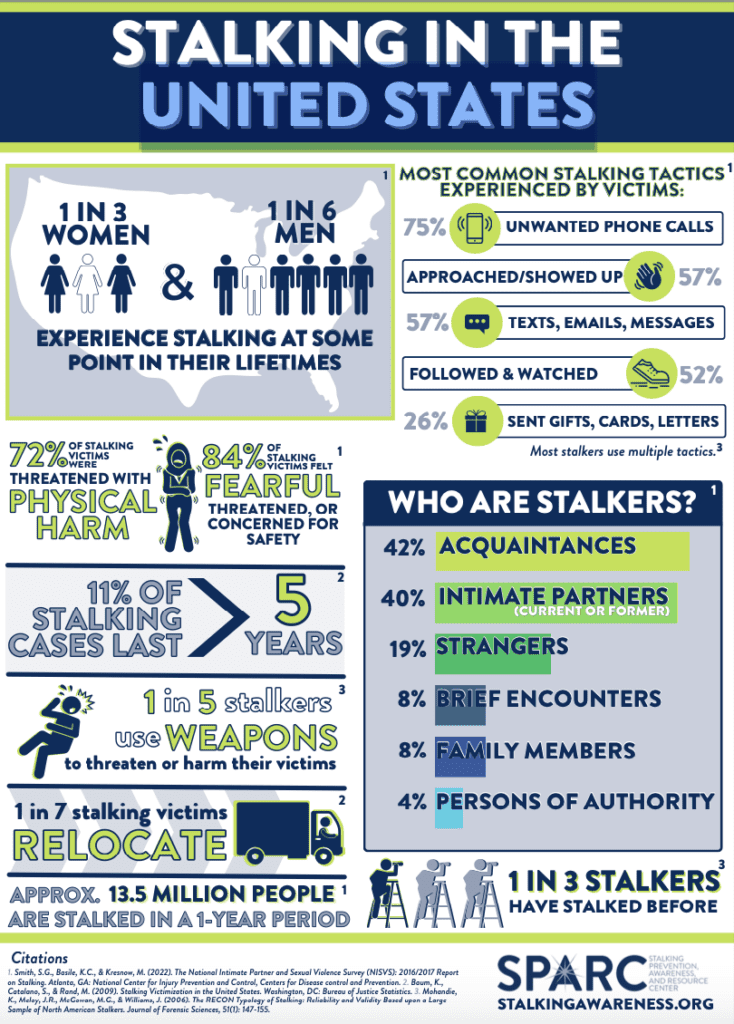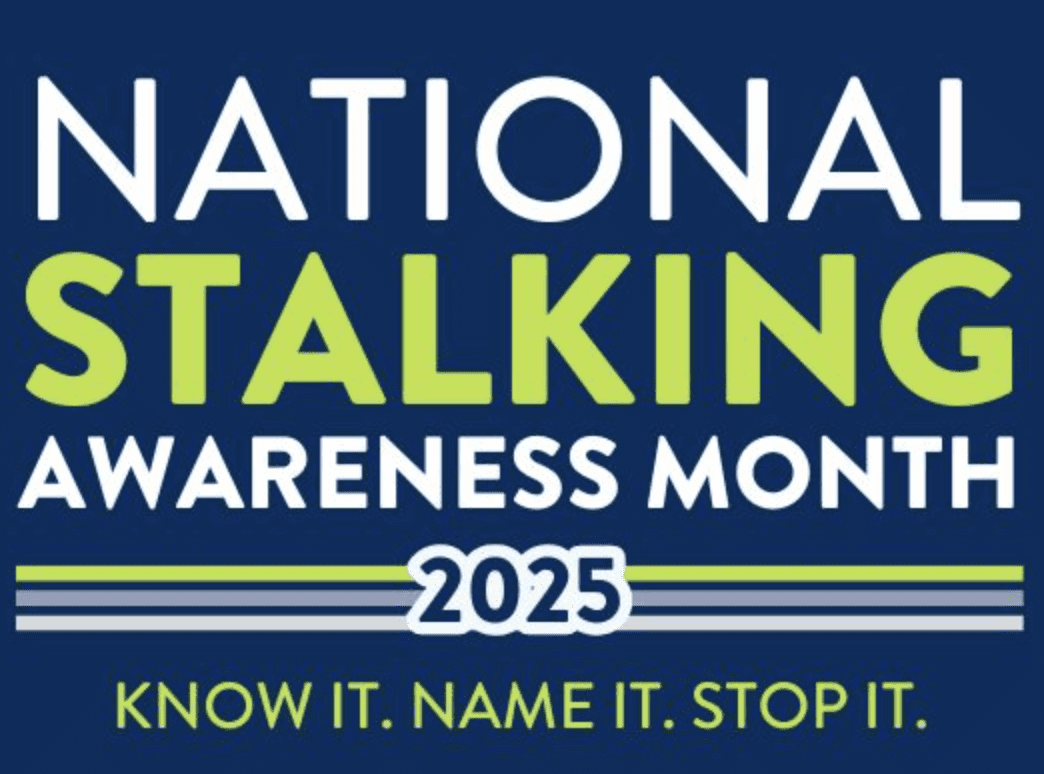Every January, the United States observes National Stalking Awareness Month, a time dedicated to increasing public understanding of stalking and advocating for the safety and rights of its victims. Stalking is a grave crime that impacts millions of people annually, often leaving lasting scars on the emotional, physical, and financial well-being of its victims.
The Origins of National Stalking Awareness Month
National Stalking Awareness Month was established in 2004 following the tragic death of Peggy Klinke, a young woman murdered by her ex-boyfriend despite seeking help and attempting to escape. Her story highlighted the urgent need for systemic change, particularly in how society, law enforcement, and policymakers address stalking. The National Center for Victims of Crime and its Stalking Resource Center spearheaded efforts to create this month-long observance, aiming to raise awareness and improve the tools available to combat stalking.
Michigan’s Anti-Stalking Legislation
Michigan joined 28 other states in criminalizing stalking on January 1, 1993, with the signing of Public Acts 251, 260, 261, and 262 by then-Governor John Engler. These laws defined stalking as:
“A willful course of conduct involving repeated or continuing harassment of another individual that would cause a reasonable person to feel terrorized, frightened, intimidated, threatened, harassed, or molested, and that actually causes the victim to feel such emotions.”
This definition emphasized the seriousness of stalking as a pattern of behavior rather than isolated incidents. It provided a legal framework to address non-assaultive behaviors that nonetheless cause profound emotional distress.
Understanding Stalking
In Michigan, stalkers commonly engage in behaviors such as:
- Following victims or appearing in their line of sight.
- Showing up uninvited at workplaces or homes.
- Contacting victims via phone, mail, or email.
- Using GPS tracking and social media to monitor and harass their targets.
- Repeated phone calls, messages, or emails.
- Persistent following or surveillance.
- Unsolicited gifts and letters.
- Threats of harm or intimidation.
- Damage to property or belongings.
Stalking in Michigan: The Scope of the Problem
Stalking is far from rare. Data shows that one in twenty adults will experience stalking at some point in their lifetime, with women being disproportionately affected. Former intimate partners are often the perpetrators, and stalking is frequently linked to cases of domestic violence. One-third of women in domestic violence shelters have also experienced stalking.
The Alarming Statistics
According to the National Intimate Partner and Sexual Violence Survey:
- One in three women and one in six men experience stalking in their lifetimes.
- Annually, an estimated 13.5 million people in the United States are victims of stalking.
- Over seventy percent of victims know their stalker, with a significant portion being current or former intimate partners.
The psychological toll of stalking is immense. Many victims report feeling constantly fearful, isolated, and anxious. Nearly one in seven victims are forced to relocate, disrupting their lives and finances.
Raising Awareness and Taking Action
The observance of National Stalking Awareness Month aims to educate communities and encourage proactive measures to combat this crime. Key strategies include:
- Public Education: Increasing awareness about the signs of stalking and encouraging victims to seek help.
- Strengthening Laws: Advocating for legislation that protects victims and holds perpetrators accountable.
- Law Enforcement Training: Ensuring police officers and legal professionals are equipped to handle stalking cases with sensitivity and precision.
- Victim Support Services: Expanding access to counseling, shelters, and legal assistance.
- Community Engagement: Encouraging neighbors, coworkers, and friends to offer support and report suspicious behavior.
The Role of Technology
While technology has enhanced daily life, it has also given stalkers new tools to track and intimidate their victims. GPS devices, social media, and hacking software are increasingly used to invade privacy. National Stalking Awareness Month also focuses on educating the public about digital safety and the importance of safeguarding personal information.
A Collective Effort
National Stalking Awareness Month serves as a reminder that stalking is not a private matter but a societal issue requiring collective action. By raising awareness, supporting victims, and demanding accountability, communities can create a safer environment for everyone.
For resources and information, visit StalkingAwareness.org or contact local victim support organizations.
Legal Protections for Victims in Michigan
Michigan offers robust legal protections for stalking victims, aiming to deter perpetrators and provide avenues for justice.
- Criminal Penalties
- Misdemeanor Stalking: Punishable by up to one year in jail, a $1,000 fine, or both. Probation of up to five years may also be imposed.
- Aggravated Stalking: This includes stalking that violates court orders or involves prior convictions, threats, or victims under 18. Penalties include up to five years in prison, a $10,000 fine, or both, along with extended probation.
- Restraining Orders: Victims can obtain anti-stalking restraining orders from their local circuit court. These orders prohibit contact between the stalker and the victim and increase violation penalties.
- Civil Actions Victims can also file civil lawsuits against their stalkers to seek compensation for emotional harm, financial losses, and legal costs.
What Should Victims Do?
Victims of stalking in Michigan are encouraged to take the following steps:
- Contact Law Enforcement: Report incidents to the police, even if immediate charges are not filed. Law enforcement agencies play a critical role in protecting victims and gathering evidence.
- Document Evidence: Keep detailed records of incidents, including dates, times, locations, and any messages or items from the stalker.
- Notify Trusted Individuals: Inform friends, family, and employers about the situation to help monitor safety and provide support.
- Develop a Safety Plan: Change daily routines, vary travel routes, and consider using unlisted phone numbers and private social media accounts.
Resources for Victims in Michigan
Michigan provides several resources to support victims of stalking:
- National Domestic Violence Hotline: 1-800-799-7233
- Michigan Women’s Commission: 517-373-2884
- Local Law Enforcement Agencies: Police departments across Michigan are equipped to respond to stalking reports and enforce anti-stalking laws.
A Community Effort
National Stalking Awareness Month underscores the need for communities to work together to combat stalking. Education, prevention, and robust legal protections are essential in addressing this crime. Michigan’s anti-stalking laws, established in the early 1990s, remain a strong model for other states. However, evolving technology and new stalking methods require continued vigilance and adaptation.
By raising awareness, supporting victims, and holding perpetrators accountable, Michigan can continue to create safer communities. National Stalking Awareness Month is an opportunity to reaffirm this commitment and ensure no one feels alone or powerless in the face of stalking.





